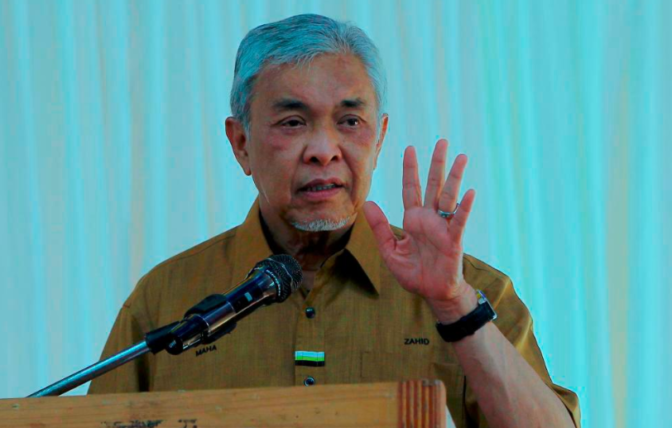
 "
"

 "
"

LONDON: To help Malaysia’s halal business grow faster, five well-known Islamic financial institutions have committed a sizeable sum of RM 2.67 billion in funding. Deputy Prime Minister Datuk Seri Ahmad Zahid Hamidi made this announcement during his keynote speech at today’s World Halal Business Conference (WHBC) 2023. Among the five financial institutions, Standard Chartered Saadiq Islamic Bank, Bank Islam Malaysia Bhd, Alliance Islamic Bank Bhd, and Hong Leong Islamic Bank promised a total of RM1.67 billion, with the SME Development Bank Malaysia Bhd making a significant pledge of RM1 billion.
“This significant pledge from top financial institutions highlights our shared commitment to fostering innovation and growth within our halal ecosystem. He stated, “The RM2.67 billion funding portfolio marks a significant boost in our mission to position Malaysia at the forefront of the global Halal economy by establishing an enabling platform for sustainable development, job creation, and global competitiveness within the Halal sector.” According to Ahmad Zahid, the government spent almost RM4 billion ringgit to advertise and market local Halal goods, however the majority of these goods could only be sold domestically and had not yet reached the international market.
“Prime Minister Datuk Seri Anwar Ibrahim is very committed to helping local Halal industry entrepreneurs to penetrate the global market,” he said, putting out the idea for the five banks’ pledge. He went on to say that the promised monies would be used for a number of projects related to Malaysia’s halal sector. This entails strengthening the dedication to the study and creation of novel Halal goods and services, promoting the construction of new infrastructure and improving current facilities for small and medium-sized businesses, and empowering entrepreneurs and start-ups in the Halal sector by offering financial support, mentorship, and guidance.
Ahmad Zahid further emphasized that Malaysia’s halal sector will continue to adopt a “whole-of-nation” strategy, working with more than 300 government organizations that share a common goal and are open to overseas collaborations and business ventures. “Our goal is very clear: we want to be innovators, not just participants in the global halal economy. “How do we accomplish that?” We achieve this by using purposeful, diverse tactics that put Malaysia at the forefront of the global Halal scene in addition to placing it prominently on the map,” he stated. He also emphasized the necessity for the nation to establish an easy-to-use and effective Halal certification procedure.
Ahmad Zahid also pointed out that as items derived from palm oil account for the majority of the Halal export market, more work needs to be done to make it more sustainable while also looking into other markets. Additionally, he declared the commencement of a new partnership between the Malaysian Palm Oil Council and the Halal Development Corporation (HDC). The goal of HDC is to promote a sustainable halal ecology that encourages moral and ecologically conscious behavior, and this partnership is in line with that goal. In the US$3 trillion global halal market, he continued, “acceptance and promotion of palm oil and its downstream products are not merely business decisions, they are ethical imperatives that resonate with global consumers who demand transparency, sustainability, and ethical sourcing.” The Bernama.